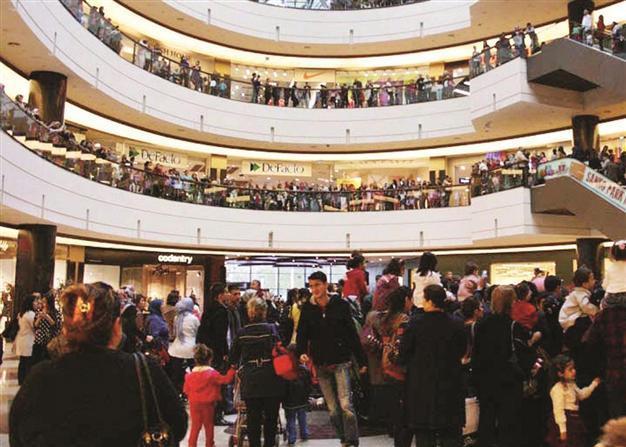Turkish malls foresee income growth in 2014
ISTANBUL

Shopping Mall Investors Association (AYD) Chairman Hulusi Bengü (picture) says they predict the total turnover of shopping malls will increase to 75 billion liras in 2014, from 60 billion liras of predicted amount for 2013. DHA photo
The Turkish shopping mall sector, ardent in remaining on the upward track and extending gains in 2014, expects to earn a total of 75 billion Turkish Liras next year said a senior sector representative.
“We predict the total turnover of shopping malls will be around 60 billion liras for this year’s end and we foresee it to increase to approximately 75 billion liras in 2014,” Shopping Mall Investors Association (AYD) Chairman Hulusi Bengü told Anadolu News Agency yesterday.
Bengü said the sector managed to expand around 20 percent in terms of turnover through 2013 and the sector expects to maintain the impressive growth rate in 2014 as well.
The AYD chairman said the average of the investment of value slated to be opened in 2014 is around $7 billion.
The total investment that the whole Turkish shopping mall sector has drawn up to today has reached $45 billion, $15 billion of which was funded by foreign capital, he noted.
The total number of shopping malls in Turkey increased to 333 with the inauguration of 27 new malls in 2013.
Gezi affectDespite the optimistic picture he paints about the sector’s outlook in terms of investments, Bengü noted shopping mall investors are forced to act more consciously of their investment’s consequences, particularly after the Gezi Park protests.
The Gezi Park protests, which erupted after a small group of activists denouncing the abolishment of trees in Gezi Park for the construction of a shopping mall on the land, faced harsh police violence and turned into a massive anti-government movement.
Despite the whole entertainment sector being shaken by the protests that started at the end of May and continued throughout most of the summer, the damage on shopping malls was hardest due to the public rage against the domination of shopping malls in urban areas.
Bengü underscored his anticipation for the realization of more socially and culturally sensitive shopping mall projects in the upcoming year, saying the sector has begun to realize the uneasiness caused by the over-sprawl of shopping malls.
“We believe the projects will bring positive value to the Turkish economy and the investors in the long run. However, rise in the density of shopping malls in some areas necessitates the investments to be thought of more carefully,” he said.
According to Bengü, this sensitivity will lead to the emergence of small neighborhood shopping malls and thematic projects at condensed settlement centers and business districts in the near future.
